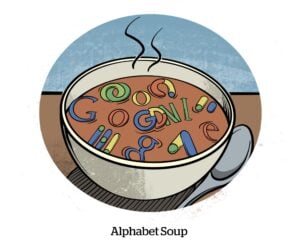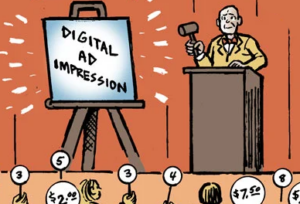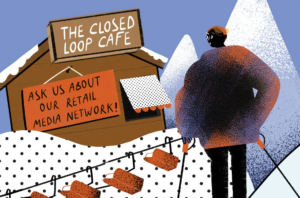 Among the many concerns ad sellers and ad agency staffers harbor about the rise of automated audience buying is that all these advancements will ultimately put people out of a job. The ethos of doing “more with less” is a general worry that happens anytime an industry finds itself in the throes of technological change.
Among the many concerns ad sellers and ad agency staffers harbor about the rise of automated audience buying is that all these advancements will ultimately put people out of a job. The ethos of doing “more with less” is a general worry that happens anytime an industry finds itself in the throes of technological change.
During a panel at Business Insider’s Ignition conference on programmatic buying that featured a mix of executives representing the sell side, agency trading desks, supply side platforms and ad networks, moderator Doug Weaver, founder & CEO of the Upstream Group, pressed the group to concede that wider adoption of exchange-based ad models will reduce employment. Not a one budged.
“Programmatic is not about doing more with fewer bodies,” said Kurt Unkel, President, VivaKi Nerve Center. “It’s about better tools and allowing people the time and space to do the things they got into advertising for: to pursue work on strategies and helping produce creative marketing solutions.”
Kirk McDonald, president of PubMatic and former president of Time Inc. digital, echoed Unkel’s statement, saying that these tools would allow publishers the same freedom to pursue their ideas as opposed to spending more time dealing with discrepancies and disputes over media buys.
As an online-only publication, Business Insider reflects the challenges that a site with a large audience has in making the most of its direct sales, while also leveraging marketers’ desire to cherry-pick audiences. For example, the rise of retargeting as a means for marketers to bridge the gap between direct response and brand awareness campaigns is one area publishers can benefit from, says Pete Spande, CRO of Business Insider,
“To a small degree, sellers are engaged with the tools of programmatic buying,” Spande said. “For a publisher like us, we can take advantage of a number of things like retargeting. We have 20 million uniques a month. We could never do that on our own, so this is an extra revenue stream. We are getting advertising dollars that we’re not staffed to get.”
Weaver then turned to Ned Brody, CEO of AOL’s Advertising.com Group. That side of AOL’s business has been growing a lot faster than its owned-and-operated sites and the direct sales that largely support that effort. For Brody, the central idea for making programmatic something that adds to a publisher’s sales operation will depend on creating more “premium” ads for exchange-based environments.
“It’s about developing greater efficacy, not greater efficiency,” Brody said. “It’s enabling people to find the audiences they want. It’s about accessing great scale. Whenever you have huge markets, you need automation to find those audience segments. Scale really does matter and it’s not just about size, but the way you approach it. How do you trade premium formats? How do you go beyond the common denominator? Those are the bigger questions the industry should focus on.”
Still, Weaver offered up the recent news that vertical content network Federated Media would be reducing its reliance on direct sales — though not completely eliminating it — in favor of heavier use of programmatic through its Lijit unit. Isn’t that clear proof that direct sales teams will be sacrificed on the altar of greater efficiency through automation?
“FM was the first to say we’re going completely one way, by focusing more of its sales on automated tools,” Brody said. “But there are few publishers who don’t use a network or an optimizer to supplement their ad sales, not replace them. I think you’re seeing a press moment. That real shift toward automation started happening four years ago and this is just one example, but not anything that’s typical of a wider trend. It’s not becoming an either/or situation when publishers are looking to adopt things like private marketplaces. It’s all still in concert.”
Private exchanges or marketplaces have started to catch on with publishers lately. But we’re still far from knowing what these tools will mean for direct sales teams, McDonald acknowledged.
“The promise of private exchanges has not been fully realized today, but then, no promise is fully realized at such an early point,” McDonald said. “There are a lot of strategies that publishers need to figure out. For example, the original price can’t be fixed. You will have to offer a range of prices and a reach and frequency commitment. The demand side needs to keep their clients happy and the publishers need to make sure that contextual value is preserved. Over the next couple years, you’ll see a futures market where someone locks up a certain amount of a publisher’s inventory within this range. That’s when you’ll start to see the difference programmatic can make to direct sales.”












